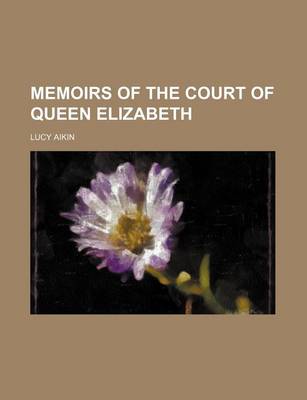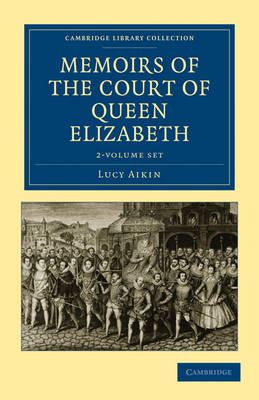Cambridge Library Collection - British and Irish History, 15th & 16th Centuries
2 primary works • 3 total works
Volume 1
Lucy Aikin (1791-1864) was a prolific writer of educational and historical works. She was a highly educated woman, influenced by her aunt, the educationalist and writer Anna Laetitia Barbauld. First published in 1818 and subsequently reprinted, Memoirs of the Court of Queen Elizabeth focuses on the art, literature, manners and morals of the period, with brief biographies of important individuals. Drawing on published sources rather than archival material, it is a clear and readable narrative that reveals the author's critical insight. This social and personal rather than political approach to history was shared by many nineteenth-century women writers, who stressed the role of women in history, rather than relegating them to the sidelines as most male historians did. Volume 1 covers the period from Elizabeth's birth in 1536 to 1570. For more information on this author, see http://orlando.cambridge.org/public/svPeople?person_id=aikilu
Volume 2
Lucy Aikin (1791-1864) was a prolific writer of educational and historical works. She was a highly educated woman, influenced by her aunt, the educationalist and writer Anna Laetitia Barbauld. First published in 1818 and subsequently reprinted, Memoirs of the Court of Queen Elizabeth focuses on the art, literature, manners and morals of the period, with brief biographies of important individuals. Drawing on published sources rather than archival material, it is a clear and readable narrative that reveals the author's critical insight. This social and personal rather than political approach to history was shared by many nineteenth-century women writers, who stressed the role of women in history, rather than relegating them to the sidelines as most male historians did. Volume 2 covers the period from 1571 to Elizabeth's death in 1603. For more information on this author, see http://orlando.cambridge.org/public/svPeople?person_id=aikilu
Lucy Aikin (1791-1864) was a prolific writer of educational and historical works. She was a highly educated woman, influenced by her aunt, the educationalist and writer Anna Laetitia Barbauld. First published in 1818 and subsequently reprinted, Memoirs of the Court of Queen Elizabeth focuses on the art, literature, manners and morals of the period, with brief biographies of important individuals. Drawing on published sources rather than archival material, it is a clear and readable narrative that reveals the author's critical insight. This social and personal rather than political approach to history was shared by many nineteenth-century women writers, who stressed the role of women in history, rather than relegating them to the sidelines as most male historians did. For more information on this author, see http://orlando.cambridge.org/public/svPeople?person_id=aikilu


